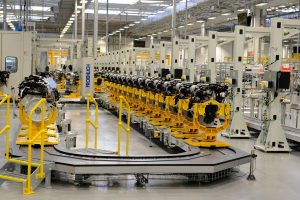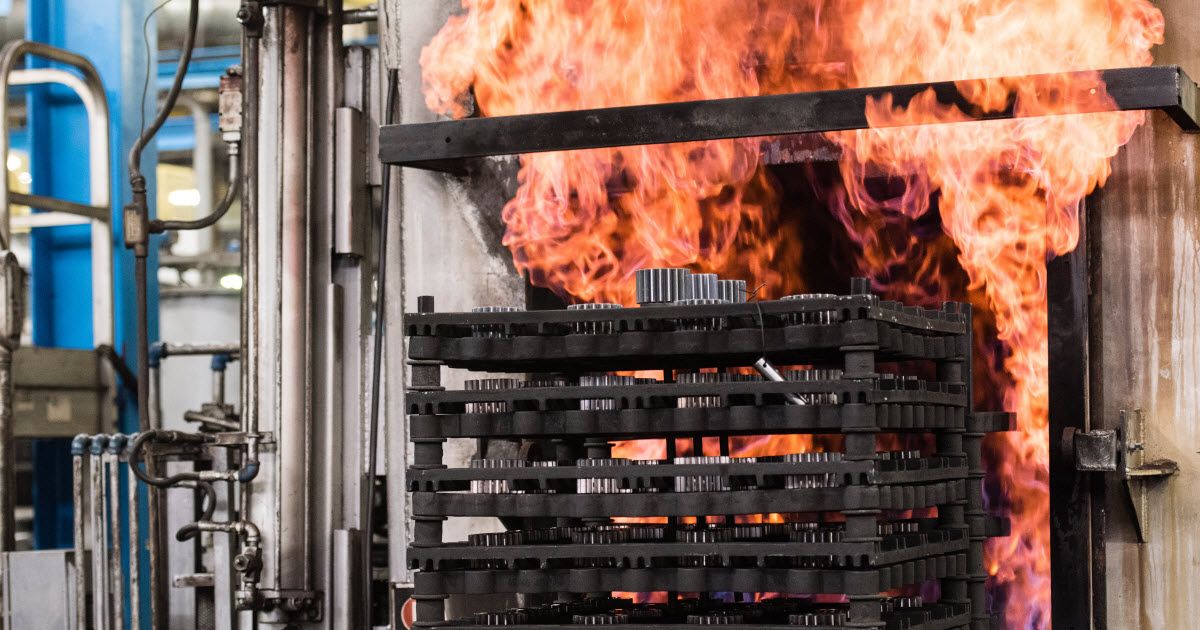Automotive Heat Treating Slowdown Worldwide
 Recently we had a news item about how auto assembly was being drastically curtailed by the ongoing “chip” shortage which was in turn effecting parts suppliers which of course has lead to a shortage of automotive heat treating Automotive Heat Treating Slows Due to “Chip” Shortage | The Monty Our original article largely concentrated on the North American market, however according to this article things are just as bad in Europe;
Recently we had a news item about how auto assembly was being drastically curtailed by the ongoing “chip” shortage which was in turn effecting parts suppliers which of course has lead to a shortage of automotive heat treating Automotive Heat Treating Slows Due to “Chip” Shortage | The Monty Our original article largely concentrated on the North American market, however according to this article things are just as bad in Europe;
“Jaguar Land Rover (JLR) is shutting its two main car factories temporarily due to a shortage of computer chips. The difficulties at Britain’s biggest carmaker echo similar problems at other manufacturers, including Ford, who have been hit by a global shortage of chips. JLR said there would be a “limited period” of closure at its Halewood and Castle Bromwich sites from Monday.
 A mixture of strong demand and Covid shutdowns at chipmakers has also hit phone, TV and video games companies.Tata-owned JLR said in a statement: “We have adjusted production schedules for certain vehicles which means that our Castle Bromwich and Halewood manufacturing plants will be operating a limited period of non-production from Monday 26th April. “We are working closely with affected suppliers to resolve the issues and minimise the impact on customer orders wherever possible.” Production at a third factory, at Solihull, will continue. The Castle Bromwich factory makes the Jaguar XE, XF and F-Type models, and employs about 1,900 people. Halewood makes the Range Rover, Evoque and the Land Rover Discovery Sport, and has about 4,000 workers.
A mixture of strong demand and Covid shutdowns at chipmakers has also hit phone, TV and video games companies.Tata-owned JLR said in a statement: “We have adjusted production schedules for certain vehicles which means that our Castle Bromwich and Halewood manufacturing plants will be operating a limited period of non-production from Monday 26th April. “We are working closely with affected suppliers to resolve the issues and minimise the impact on customer orders wherever possible.” Production at a third factory, at Solihull, will continue. The Castle Bromwich factory makes the Jaguar XE, XF and F-Type models, and employs about 1,900 people. Halewood makes the Range Rover, Evoque and the Land Rover Discovery Sport, and has about 4,000 workers.
The Covid-19 pandemic has driven up demand for semiconductor chips for use in electronics such as computers, as people worked from home, and suppliers are struggling to adjust. There has also been a fire at a Japanese company, part of Renesas Electronics, one of the world’s biggest makers of semiconductors for the car industry.
Also on Thursday, France’s Renault warned that the chip shortage was worsening. On Wednesday, carmaker Stellantis, which owns the UK Vauxhall brand, said it would replace digital speedometers with more old-fashioned analogue ones in one of its Peugeot models, as the fallout continues. Daimler, General Motors and Volkswagen have all suspended production lines at various times in recent weeks.
What has made the auto industry particularly vulnerable is its reliance on just-in-time delivery, where parts are brought in when needed, rather than being stockpiled. Normally this is seen as the efficient way to do things – but the semiconductor shortage has shown just what can happen when normally well-oiled supply chains seize up. Further disruption over the coming weeks and months is inevitable, because it takes time to ramp up chip production. The question now is what carmakers can do to ensure they aren’t caught out by a similar supply squeeze in future.”
Did you like this article? Click here to subscribe to The Monty.
View our recent magazines and podcasts by clicking the following link. https://themonty.com/magazine/

